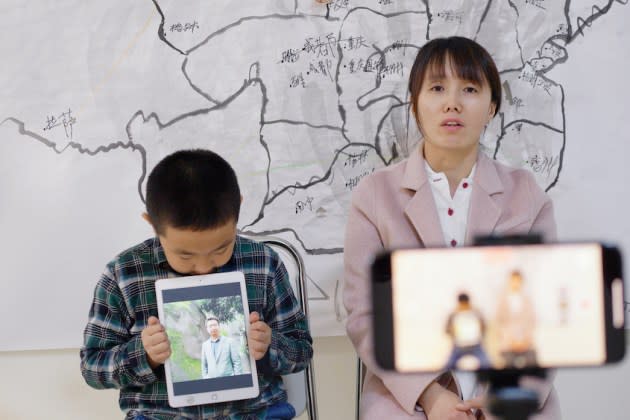‘Total Trust’ Review: Jialing Zhang’s Documentary on China’s Surveillance Program Is an Eye-Opening Warning

While it’s hardly news that most of us are under some form of surveillance any time we’re in public, the extent of Big Brother’s activities still has the capacity to astound. That’s nowhere truer than in the People’s Republic of China, whose efforts to monitor its citizens’ every action (public or otherwise) would make Orwell blush. “One Child Nation” co-director Jialing Zhang once again turns the camera on her home country in “Total Trust,” the kind of eye-opening documentary that makes you realize you know far less about its subject than you thought you did — however bad you may think China’s surveillance state is, Zhang can assure you it’s far worse.
Taking its title from a dubious news report claiming that public trust in the government reached a staggering 98% at the height of the pandemic, the film’s very existence runs counter to that claim. It was made with the assistance of anonymous locals behind the camera and focuses on a number of female activists in front of it, including independent journalist Sophia Xueqin Huang. One of her most dispiriting revelations comes when she says that people are so inured to this level of state control that the government doesn’t need to censor them — they censor themselves. She doesn’t, and we later learn that she’s been jailed for the Chinese Communist Party’s catch-all charge: inciting subversion of state power.
Charged with the same thing is Weiping Chang, a lawyer whose wife Zijuan Chen and son Tutu have devoted themselves to freeing him from his Kafkaesque incarceration. “There’s a CCTV camera 700 meters in front of you,” her GPS says as she drives several hours to his latest court appearance; she’s then stopped at a government checkpoint and barred from driving any farther. She may not be imprisoned — or tortured, as her husband has been — but she certainly isn’t free.
(Despite its many brave and well-spoken interviewees, the film’s most memorable subject is a little boy who yells, “One day your children and all your descendants will pay the price for what you’re doing now!” to a recently installed camera on his street.)
For all its focus on these personal stories, “Total Trust” is at its most unsettling when focusing on China’s countrywide programs. One of these is “social management,” in which communities are divided into grids and assigned an officer who monitors and reports on citizens thought to be subversive. An officer of the so-called Sharp Eyes Project who’s interviewed goes so far as to show the app she and her colleagues use, which includes a ranking system for the people they’re watching; they even get points for good behavior. One woman’s 10 hours of volunteer work earns her two points, which she could exchange for such “gifts from the government” as chopsticks or gloves, whereas five points would get her gift boxes or chopstick holders. Somehow this seems less fun than turning in your tickets at Chuck E. Cheese for a stuffed animal.
The film’s breakdown of the much-discussed social-credit system is even more dispiriting, if only for the figures provided: -5 points for running a red light, -50 points for petitioning to central government, -20 points for “extravagance in wedding or funeral.” There are more than 1,040 ways to lose points, but only 190 ways to earn them. Dropping in the rankings can affect which schools your children are allowed to attend or limit your ability to travel on high-speed rail. It’s brilliant in its cruelty: The harder you push back against it, the more your standing drops.
The word “Orwellian” has been so overused in recent years as to lose much of its meaning, but it seems woefully insufficient to describe the implications of this system. Zhang lets this woeful reality speak for itself, keeping the steady hand of a disinterested observer who only needs one camera to document what her country is doing with hundreds of millions of them. You can only imagine how many points she would lose for making this sobering film if she still resided in China, to which she cannot return after making “One Child Nation.” This necessitated directing “Total Trust” remotely, a feat in and of itself.
“If a country can’t tolerate someone like him,” Sophia says of Chang early on, “the country is the problem.” Truer words, and yet the exact problem on display in “Total Trust” is how little having the truth on your side matters when dealing with a state that can create its own version of the truth — both a uniquely Chinese conundrum and one that the rest of us would do well to remember might be closer than we’d like to think.
Best of Variety
Sign up for Variety’s Newsletter. For the latest news, follow us on Facebook, Twitter, and Instagram.
